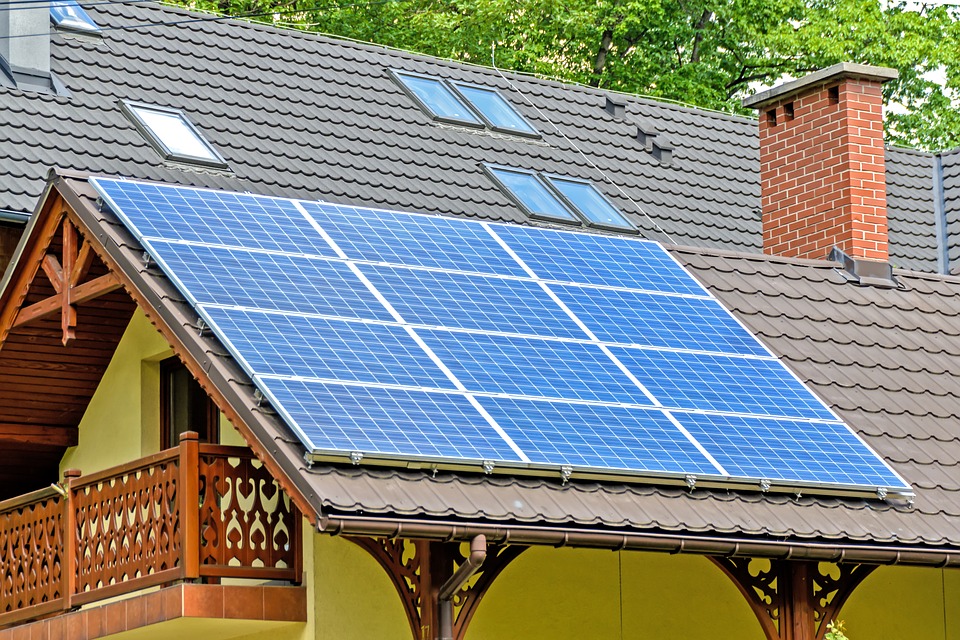Which battery is most suitable for solar energy storage?

The world is shifting towards sustainable energy due to the global power crisis. Many countries around the world are not able to produce an efficient supply of energy. The use of solar energy systems is gradually increasing the past few years due to the immense increase in demand. Solar energy system comprises solar panels, batteries, monitoring systems, and mounting tools. However, batteries play one of the most important roles in the overall performance of this system. The energy captured by the solar panels is stored in batteries and that is why choosing the right one is obligatory.
Here are some of the types of batteries available in the market:
Lithium-Ion
One of the most trending solar batteries in the UK and the rest of the world are Lithium-ion batteries as they gained immense hype due to their use in electric cars. These batteries are known for having a unique voltage range and can be charged with a voltage regulator charge controller. Such batteries have low maintenance as well as low self-discharge, making them one of the best storage batteries for solar power.
As the trends are changing now and things have become more eco-friendly, Lithium-ion batteries are getting more popular. The lithium-ion battery has a comparatively long lifespan and can also supply more cycles. However, these batteries need an extra protection circuit. These are one of the most used batteries for solar power.
Lead Acid
Lead Acid is the traditional battery that has been in the market for decades and is considered an efficient option when it comes to supply for off-grid areas. These batteries have high power and discharge but take comparatively much more time to fully charge. As Lead Acid batteries are considered highly toxic to the environment, the use of these batteries is becoming less with time.
Flooded and valve-regulated lead acid batteries are typically used for solar energy storage. If you are planning to get the flooded one, you need to take care of watering and ventilation for its proper functioning. Moreover, valve-regulated lead acid batteries are more sensitive to temperature.
Nickel Cadmium
Such batteries have efficient tolerance to numerous temperatures and also require low maintenance. Nickel Cadmium batteries have a better shelf life and come in several sizes but the one used for solar energy storage has a low energy density and high discharge rate and these are the reasons it’s not that suitable for solar systems. Both lead acid and nickel cadmium have high toxic levels for the environment.
How to choose the most suitable battery for solar energy storage?
Here are some of the factors to consider when choosing a suitable battery for solar energy storage;
Capacity and Power
The total amount of energy a battery can store is known as its capacity, and it is measured in kilowatt-hours (kWh). People consider buying multiple batteries to enhance storage capacity. However, when buying solar energy storage, you need to look for batteries with a better capacity. Still, the importance of power can’t be ignored. The amount of electricity a battery can provide is considered its power. Get a battery with good power efficiency.
Let’s suppose you have a high-capacity battery with low power, it can run much longer but won’t be able to sustain appliances that demand more power. Moreover, if you have a battery with low capacity and high power, it would manage crucial appliances but won’t be able to last much longer.
Battery Life and Warranty
The next important thing to consider is the battery life and warranty as you can’t afford to buy batteries every other day. As batteries get old, their ability to hold the charge declines. Same as your mobile phone batteries, when they get older, their ability to hold the charge diminishes, and this is why a warranty is a must. It gives you a clear prediction of how long your battery lasts. It allows you to calculate the useful years of your battery and when to plan for a new one. It depends on how your battery is manufactured and the quality of the elements used in it.
Safety
Batteries have to meet some safety requirements to be approved, as you are required to store them in your home, any unhealthy battery isn’t possible to store. The batteries must be tested for safety at different levels, it directly depends on the chemistry of the battery too. However, you should verify if the battery has met all the safety requirements or not.
Conclusion
The need of the hour is clean energy, and societies are working collectively to attain it as soon as possible. However, everyone should be aware to choose the right option for them in these changing times. You must choose an efficient battery with a decent price tag for your house, office, or wherever to tackle the global energy crises.








